Fariborz Maseeh Department of Mathematics + Statistics
MASEEH DEPARTMENT OF MATHEMATICS + STATISTICS

PhD Mathematics Education
The main objective of this program is to develop educators with an understanding of mathematics and its teaching and learning, and with the capabilities for research and professional practice in the field.
- How to Apply
- Contact Adviser
- Faculty Research
Student Handbook
- PSU Bulletin
- Graduate Forms
This program provides a balance between mathematics and mathematics education in order to develop mathematics educators who can become: (i) Faculty members in mathematics departments or schools of education in universities, four year colleges, or community colleges; (ii) Curriculum specialists in mathematics, supervisors of mathematics at the middle school level or secondary school level, or mathematics specialists in state or local departments of education; (iii) Private sector specialists in mathematics education.
Where our doctoral program graduates are currently employed or were employed just after graduating.
Program Prerequisites
Candidates in this program must currently have (or complete during their program) a master's degree in mathematics equivalent to the MS/MA Mathematics degree or the MS in Mathematics for Teachers degree at Portland State University.
In addition to program prerequisites, applicants must meet the university's minimum admission requirements including English language proficiency .
Application Deadline
This program admits once per year for fall term only. Applicants seeking financial support should apply by January 15th for priority consideration. Applications will not be accepted after February 1.
Application Instructions
Cost and funding .
Refer to the University Student Finance web page for tuition and financial aid information.
The department offers a limited number of Teaching Assistantships, Research Assistantships , Fellowships, and Scholarships. Program applicants are able to indicate their interest in an assistantship as part of the online program application.
Degree Requirements
Candidates must complete an approved program of 84 credit hours consisting of three major components: coursework, a research practicum experience, and dissertation research.
Coursework (54 credits)
Coursework must include a minimum of:
- 18 credit hours in Mathematics Education Research Courses (Mathematics 690 - 695)
- 18 credit hours of other 500-600 level mathematics courses
- 18 hours of graduate coursework in supporting areas outside of mathematics (such as curriculum and instruction, psychology, educational policy, science, computer science, philosophy, sociology, anthropology, etc.)
Research Practicum MTH 601 (3 credits)
The purpose of the research experience will be to provide candidates with an opportunity to use methodological techniques in mathematics education early on in their course of study. Prior to the dissertation, candidates will be expected to gain experience with the qualitative and quantitative approaches that are now used by many researchers and curriculum developers in mathematics education. Some examples of possible research practicum experiences are: case studies of students' learning documented over time, studies of teachers' practice in the mathematics classroom, documentation of teachers' beliefs about mathematics as they implement new curricula.
Dissertation Research MTH 603 (27 credits)
The PhD dissertation research will ordinarily be conducted under the guidance of a mathematics educator in the Fariborz Maseeh Department of Mathematics and Statistics. The dissertation is the most important part of a candidates program, and involves identifying and researching a significant problem which builds upon previous research, and which will make an original contribution to an area of research in mathematics education. Dissertation committees consisting of a mix of faculty with expertise in mathematics education, mathematics, curriculum and instruction, and other areas outside of mathematics education will be encouraged. After completing the comprehensive examinations, the chairperson and dissertation committee will be appointed. The student will develop a dissertation proposal which will be defended in an oral presentation to the committee. When the proposal has been approved by the committee, and if necessary by the University Human Subjects research Review committee, the student will be considered a candidate for the PhD in mathematics education. The dissertation must be completed according to the outlines of the proposal approved by the candidate's committee. Students must register for dissertation credit during each term they are engaged in dissertation research. Upon completion of doctoral thesis work, the candidate will defend the dissertation before the committee in an oral presentation that is open to other interested faculty and students. The student is expected to demonstrate knowledge of the research literature in mathematics education that relates to the particular problem chosen for research, and to show how the dissertation contributes to work in this area.
Demonstrated Competency Areas
Prior to completing their program, candidates in the Mathematics Education PhD program will be expected to demonstrate competency in the following 7 areas:
- mathematics education
- mathematics
- supporting content areas
- the use of technologies in teaching mathematics
- the application of mathematics education in an urban setting
- research in mathematics education
1. Mathematics Education
The competency in mathematics education can be met by successfully completing graduate coursework in mathematics education and the psychology of learning and by passing a written, comprehensive exam.
Coursework: Candidates must successfully complete the 6 graduate seminars in Mathematics Education (Math 690, 691, 692, 693, 694, and 695) and at least one course in the psychology of learning.
Comprehensive Exam in Mathematics Education: Prior to being advanced to candidacy, students must pass and orally defend a written, comprehensive exam that covers the key developments and theoretical perspectives on the history of mathematics education, the teaching and learning of mathematics, and the development of curriculum in mathematics. The implications of this information for urban populations and settings will also be included. Students will have two weeks to compose their responses, which they will defend orally before an examination committee.
2. Mathematics
Applicants to the Ph.D. in Mathematics Education are expected to have at least a master's degree in mathematics or a degree equivalent to the MS in Mathematics for Teachers (MS-MTCH) degree at Portland State University. The competency in mathematics can be met by successfully completing additional graduate-level course work in mathematics beyond the masters and by passing a written comprehensive exam.
Coursework: Candidates must complete an additional 18 graduate-level credits in mathematics beyond the masters (or the equivalent of the MS-MTCH degree at PSU) that together with their master's program reflects a sufficient breadth and depth of the topics in elementary calculus and analysis, linear and abstract algebra, geometry and topology, probability and statistics, and other applications
Comprehensive Exams in Mathematics: Prior to being advanced to candidacy, students must pass and orally defend a written comprehensive exam in mathematics that covers the big ideas of analysis, linear and abstract algebra, plus one of the following areas: probability, statistics, topology, geometry, or applied mathematics. Students will sit for the exam but will have the opportunity to defend their responses orally before an examination committee.
3. Supporting Content Areas
The competency in supporting content area(s) can be met by successfully completing 18 graduate credit hours in areas outside of mathematics such as, curriculum and instruction, psychology, educational policy, science, computer science, philosophy, sociology, anthropology, etc. Candidates will be expected to plan this portion of their program in consultation with their advisor so that the 18 credits forms a coherent supporting focus and includes at least one course in the psychology of learning.
4. Teaching
It is recommended that candidates in the PhD program acquire mathematics teaching experience at both the K-12 and the college level. At a minimum, candidates must demonstrate competency in teaching mathematics for at least one of these two levels.
5: The use of technologies in teaching mathematics
Students will be expected to acquire background and experiences in how students best learn mathematics within technologically enhanced learning environments either by working with students in K-12 classrooms or by teaching courses in the department that utilize technology (e.g., pre-calculus, calculus, linear algebra, or differential equations). The role of technology in mathematics education will be addressed throughout the doctoral program. In the seminar courses on teaching and learning (Math 693 and 694) and in the topics courses (Math 695) students will become versed in the research literature on technology in mathematics education.
The Fariborz Maseeh Department of Mathematics and Statistics also offers Math 588 "Technology for Teachers" which provides exposure to a variety of technologies including symbolic algebra manipulators (i.e., Maple, Mathematica, and Derive), graphing packages (Derive, various graphing calculators), and geometrical tools (Cabri geometry, Geometer's Sketchpad). In addition students are introduced to the various mathematics resources and information available on the World Wide Web. This course, or its equivalent, will be required of all participants in the program.
6. Applications of mathematics education in an urban setting
Portland State University and the Portland Metro area provide a "natural laboratory" for conducting research on the teaching and learning of mathematics within an urban setting. Moreover, integral to the mission of Portland State University is a commitment to work with community partners in the promotion of educational reform K-16. Candidates in the Ph.D. program will be expected to demonstrate competency in working with urban populations and settings either by providing service or conducting research with community partners.
7. Research in Mathematics Education
The competency in research in mathematics education can be met by successfully completing coursework in research in mathematics education, a research practicum project, and the doctoral dissertation.
Coursework: Students need to demonstrate experience with both quantitative and qualitative research methods which can be done through coursework and within the research practicum. Students must successfully complete Mathematics 692, Research Methodology and Research Design in Mathematics Education. Some students may also wish to take some additional coursework in research methodologies from outside areas.
In a doctoral program, the residency requirement can be satisfied in one of the follow ways:
- Three terms of full-time enrollment (minimum 9 graduate credits applicable to the degree program each term) during the first two years after admission to the program. This may include one or more summer terms.
- Six terms of part-time enrollment (minimum 1 graduate credit applicable to the degree program each term) during the first two years after admission to the program. This may include one or more summer terms.
- A doctoral student who was enrolled in the same major at PSU, and whose matriculation to the doctoral program immediately follows (within one calendar year) the master's degree program, may fulfill the residency requirement during the period in which the student was enrolled in the master's program
For additional details please read the PhD in Mathematics Student Handbook and the general rules in the Graduate School section of the University Bulletin .
Mathematics Education, PHD
On this page:, at a glance: program details.
- Location: Tempe campus
- Second Language Requirement: No
Program Description
Degree Awarded: PHD Mathematics Education
This transdisciplinary PhD program in mathematics education accommodates students from a variety of academic backgrounds. It provides students with a solid foundation in graduate-level mathematics as well as research skills and perspectives that enable them to incorporate mathematics into such core educational areas as:
Conducting individual and collaborative research in the learning and teaching of mathematics is an integral part of the program.
Degree Requirements
Curriculum plan options.
- 84 credit hours, a written comprehensive exam, an oral comprehensive exam, a prospectus and a dissertation
Required Core (12 credit hours) MTE 501 Research in Undergraduate Mathematics Education I (3) MTE 502 Research in Undergraduate Mathematics Education II (3) MTE 503 Research in Undergraduate Mathematics Education Ill (3) MTE 504 Research in Undergraduate Mathematics Education IV (3)
Electives (42 credit hours)
Area Courses (12 credit hours)
Research (6 credit hours) MTE 792 Research (6)
Culminating Experience (12 credit hours) MTE 799 Dissertation (12)
Additional Curriculum Information Four to five graduate-level (500 and above) elective courses from mathematics, cognitive science, psychology, educational technology, philosophy or research should be taken as approved by the advisor.
For the area courses, students are required to take four graduate-level courses from the following areas of interest: mathematics, applied mathematics or statistics. Students should see the academic unit for the approved course list.
Students should see the school's website for information about qualifier and comprehensive examinations based on math coursework.
The doctoral dissertation culminating experience consists of a dissertation prospectus, oral dissertation defense and the submission of a final revised, formatted dissertation document to the Graduate College. Dissertations are composed under chair- and committee-supervised research, including literature review, research, data collection and analysis, and writing.
When approved by the student's supervisory committee and the Graduate College, up to 30 credit hours from a previously awarded master's degree may be used for this program. If students do not have a previously awarded master's degree, the remaining coursework is made up of electives and research.
Admission Requirements
Applicants must fulfill the requirements of both the Graduate College and The College of Liberal Arts and Sciences.
Applicants are eligible to apply to the program if they have earned a bachelor's or master's degree in mathematics or a closely related area, with exceptionally high grades in advanced coursework in mathematics, from a regionally accredited institution.
Applicants must have a minimum cumulative GPA of 3.00 (scale is 4.00 = "A") in the last 60 hours of their first bachelor's degree program or a minimum cumulative GPA of 3.00 (scale is 4.00 = "A") in an applicable master's degree program.
All applicants must submit:
- graduate admission application and application fee
- official transcripts
- statement of education and career goals
- writing sample
- three letters of recommendation
- proof of English proficiency
Additional Application Information An applicant whose native language is not English must provide proof of English proficiency regardless of their current residency.
At least two of the letters of recommendation must be from faculty.
Next Steps to attend ASU
Learn about our programs, apply to a program, visit our campus, application deadlines, learning outcomes.
- Able to complete original research in applied mathematics.
- Able to incorporate mathematical concepts into novel teaching methods.
- Address an original research question in mathematics education.
Career Opportunities
Graduates of the doctoral program in mathematics education have opportunities in Arizona, the U.S. and internationally. Opportunities are typically at research universities and liberal arts colleges, community colleges, and education consulting firms and in roles such as:
- faculty-track academic
- education consultant or analyst
- mathematics professor, instructor or researcher
Program Contact Information
If you have questions related to admission, please click here to request information and an admission specialist will reach out to you directly. For questions regarding faculty or courses, please use the contact information below.
- [email protected]
- 480/965-3951
Mathematics Education PhD
Doctor of philosophy.
The Doctor of Philosophy (Ph.D.) degree emphasizes research competencies. The degree requires a scholarly dissertation of intellectual merit and sound research methodology. Dissertation research may include analytical studies of the process of teaching or experimental studies of the teaching-learning process, including studies of verbal learning and laboratory practice or historical studies.

Admissions Information
Displaying requirements for the Spring 2024, Summer 2024, and Fall 2024 terms.
- Points/Credits: 75
- Entry Terms: Spring, Summer, Fall
Application Deadlines
| Entry Term Available | Priority Deadlines | Final Deadlines | Extended Deadlines |
|---|---|---|---|
| Spring | November 15, 2023 | November 15, 2023 | N/A |
| Summer | December 1, 2023 | June 1, 2024 | N/A |
| Fall | December 1, 2023 | July 1, 2024 | N/A |
For details about rolling deadlines , visit our admission deadlines page.
Select programs remain open beyond our standard application deadlines , such as those with an extended deadline or those that are rolling (open until June or July). If your program is rolling or has an extended deadline indicated above, applications are reviewed as they are received and on a space-available basis. We recommend you complete your application as soon as possible as these programs can close earlier if full capacity has been met.
Application Requirements
| Requirement | |
|---|---|
| , including Statement of Purpose and Resume | |
| Results from an accepted (if applicable) | |
| $75 Application Fee | |
| Two (2) Letters of Recommendation |
Requirements from the TC Catalog (AY 2023-2024)
Displaying catalog information for the Fall 2023, Spring 2024 and Summer 2024 terms.
View Full Catalog Listing
Doctoral Degrees
All candidates for the Ed.D., Ed.D.C.T., or Ph.D. degrees are expected to demonstrate both mathematics and mathematics education competencies through a series of certification examinations taken upon the completion of 60 graduate points. Certification examinations test the student’s knowledge of current research and theory in mathematics education and mathematics content. Examinations are offered once in the fall, spring, and summer terms. Courses recommended as preparation for the examinations in mathematics education include MSTM 6037, MSTM 4019, and other mathematics education courses; Courses recommended as preparation for the examinations in mathematics are 6000- level mathematics content courses.
Students must demonstrate acceptable proficiency in at least three of the following six mathematics content areas: algebra, analysis, discrete mathematics, foundations of mathematics, geometry and topology, and probability and statistics. Students may sit for the examination in mathematics content during the regular certification examination times. Alternatively, they may register for advanced content courses and, with permission of the program, sit for the content area certification examination upon completion of the course. Incoming doctoral candidates should register for MSTM 6037 Professional Seminar in Mathematics during the first year of doctoral studies.
Doctoral students whose dissertations require statistical analysis should include appropriate statistics courses in their programs. These points can be included either in the mathematics/mathematics education requirement or can be taken as research electives.
Doctor of Philosophy in Mathematics Education
The Doctor of Philosophy (Ph.D.) degree emphasizes research competencies. The degree program requires a scholarly dissertation of intellectual merit and sound research methodology. Dissertation research may include analytical studies of the process of teaching or experimental studies of the teaching-learning process, including studies of verbal learning and laboratory practice or historical studies.
Candidates are encouraged to develop an association with a faculty member early in their studies to identify a problem area of mutual interest to plan a course of studies that leads to the competencies needed to complete dissertation research and prepare for a professional role. Further details are available in the brochures on doctoral studies and in the general descriptions of doctoral programs available from the Office of Doctoral Studies (ODS).
A program of study for the Doctor of Philosophy degree must include at least 45 points taken under Teachers College registration. In order to permit the acquisition of broad and basic scholarship, each program of study should include at least 60 points in mathematics, mathematics education, statistics, and computing. At least 35 points should be in advanced courses – including research courses (MSTM 6500 or 6501 and MSTM 7500). (Any Teachers College course at the 6000 level or above, any Columbia University Graduate School of Arts and Sciences course with a “G” prefix, any “W” course numbered above 4000, or any transferred course with a graduate-level prerequisite will be considered an advanced course.) Further, 15 points in the philosophical, psychological, and curricular foundations of education must be included in every Ph.D. degree program. Students whose dissertations require statistical analysis should include appropriate statistics courses in their programs. These points can be included either in the mathematics/mathematics education requirement or can be taken as research electives.
Candidates for the Ph.D. degree are required to demonstrate competency in two languages chosen from among French, German, and Russian. Students who require other languages for the preparation of their dissertation may petition the program to request one substitution. Students in mathematics may not use computer languages or statistics to satisfy the language requirement.
The Ph.D. dissertation is a scholarly study contributing new theoretical knowledge to the field and should be planned early in the program when sufficient advanced courses have been completed to permit the candidate to enroll in relevant research courses. Ph.D. dissertations in mathematics education should be (1) experimental studies in learning, (2) analytical studies in policy theory in mathematics education, or (3) other scholarly investigations of problems and issues of broad significance in the field.
The website of the Program offers a list of Topic study groups which doctoral students are recommended to join.
- View Other Degrees
Program Director : Professor Alexander Karp
Teachers College, Columbia University 323 Thompson
Phone: (212) 678-3381 Fax: (212) 678-8319
Email: tcmath@tc.edu
- Future Students
- Parents/Families
- Alumni/Friends
- Current Students
- Faculty/Staff
- MyOHIO Student Center
- Visit Athens Campus
- Regional Campuses
- OHIO Online
- Faculty/Staff Directory
Teacher Education
- History and Legacy
- Mission & Vision
- Academic Departments
- Centers and Offices
- Office of the Dean
- Accreditation and Assessment
- Strategic Plan
- Academic Programs
- Honor Programs
- Schedule a Tour
- Brothers Rise Initiative
- Holmes Scholars (Graduate Students)
- International Student Resources
- Transfer Students
- Financial Aid & Scholarships
- Graduate Assistantships
- Professional Development Institute for Alternate Licensure
- Undergraduate Advising
- Group Study Rooms
- Patton College Forms
- Military and Veteran Services
- Career Network
- Clinical Practice in Education
- Student of the Month Nominations
- Dean's Circle of Engagement
- Emeriti Faculty and Staff
- Alumni of the Month Nominations
- Give to The Patton College
- Faculty and Staff Directory
- Faculty Resources
- Patton College Faculty-Staff Awards
Helpful Links
Navigate OHIO
Connect With Us
Doctorate in Mathematics Education
Program Code: PH6245
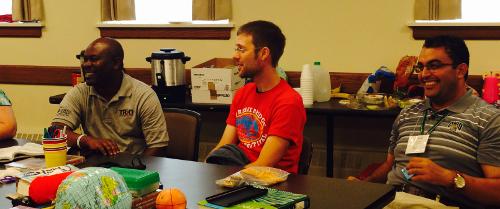
The PhD in Mathematics Education develops scholars who study teaching, learning, and assessment in mathematics—kindergarten through college. The program prepares these scholars to act as stewards of the field of mathematics education, with all its complexity and diversity. The program participants conduct research in curriculum, instruction, learning, assessment, professional development, teacher beliefs, and student attitudes. Students in the PhD program not only learn how to conduct such research but also serve in apprenticeship roles in teacher preparation and professional development to prepare them for university faculty positions and other leadership roles in mathematics education. The program in is built on a common foundation of learning theory, the social and cultural contexts of education, curriculum and instruction theory, the moral and ethical dimensions of leadership, and quantitative and qualitative research methods.
It is expected that all students completing a doctoral degree in Mathematics Education will demonstrate knowledge and skills in a common core of competencies plus an area of specialization and successfully complete a dissertation. For each individual scholar, coursework serves as the basis for investigating a significant educational issue that will advance the field of Mathematics Education and prepare the student for future research. Every student in the PhD program in Mathematics Education has the opportunity to construct a highly individualized program based on each scholar’s career goals. Specializations are available based on the expertise of doctoral faculty. This program can be completed on a full- or part-time basis. As a full-time program, degree completion in 4–5 years is typical.
Application Process
Request Info
Greg Foley Program Coordinator Patton Hall 321D 740.593.4430
Frans Doppen Graduate Doctoral Coordinator Patton Hall 309EE 740.593.0254
Program Overview
Learning outcomes.
- Demonstrate a strong foundation in mathematics subject matter.
- Use their understanding of how PK–16 students learn and engage with mathematics to develop, evaluate, and investigate rigorous and equitable mathematics education curriculum, teaching, assessment, and technology.
- Describe and evaluate research methodologies appropriate to the study of mathematics education.
- Use equitable and inclusive teaching and assessment practices that are responsive to diverse learners and incorporate appropriate use of technology.
- Discuss, evaluate, and synthesize the body of literature central to mathematics education, professional preparation standards for mathematics teachers, and PK–16 mathematics learning standards.
- Develop skills in teaching college mathematics, mathematics courses for PK–12 teachers, mathematics methods courses for PK–12 teachers, or facilitating professional development for PK–12 teachers.
- Analyzing, evaluate, and synthesize research theories in mathematics education, apply research theories in PK–16 contexts, and support others in applying them in PK–16 contexts.
- Conduct independent research in mathematics education that relies on quantitative, qualitative, or mixed research design and methodology suitable for professional publications and presentations.
- Develop awareness of current trends and issues in education broadly, and mathematics education specifically, that leads to advocacy for learners and teachers.
- Be prepared to accept a university faculty position or other leadership roles in the field of mathematics education.
Required Courses
Minimum Total Credits: 76 semester credit hours including the dissertation Students completing the program full-time (12 hours per semester), typically complete the program in 4–5 years and are typically in residence at the Athens campus of Ohio University at least 2 years.
Foundations Core: minimum 5 semester hours
- EDTE 8900 First-Year Doctoral Seminar (1 credit)
- A graduate-level course (5000 level or above) focused on critical studies chosen in consultation with a doctoral committee
Teaching & Learning Core: minimum 15 semester hours
- EDTE 7150 Theories of Curriculum Change (3 credits)
- EDTE 7160 Theories of Instructional Change (3 credits)
- EDTE 7920 Curriculum and Instruction Practicum (6 credits)
- EDTE 8000 Advanced Dynamics of Human Learning (3 credits)
Research Core: minimum 22 semester hours
- EDRE 7200 Educational Statistics (4 credits)
- EDRE 7210 Regression Analysis in Education (4 credits)
- EDRE 7330 Research Design in Education (4 credits)
- EDRE 7500 Introduction to Qualitative Methods in Education (4 credits)
- EDTE 8040 Writing for Professional Publication in Education (3 credits)
- One additional graduate-level research course is chosen in consultation with the student’s doctoral committee
Mathematics Education Specialization: minimum 24 semester hours
- At least 9 semester hours of graduate-level mathematics courses are chosen in consultation with the doctoral committee to extend the depth and breadth of prior mathematical proficiency.
- EDTE 7300 Curriculum in Mathematics Education (3 credits)
- EDTE 8900 Research in Teacher Education: Assessments in Educational Contexts (3 credits)
- EDTE 8940 Mathematics Education Through the Lens of Technology (3 credits)
- One additional graduate-level mathematics education course is chosen in consultation with the doctoral committee
- At least one additional graduate-level mathematics or mathematics education course is chosen in consultation with the doctoral committee
Dissertation: minimum 10 semester hours
It is expected that all candidates completing a doctoral degree in the Department of Teacher Education will propose, conduct, and prepare a comprehensive written report of an individually designed research study addressing a significant educational issue that will advance the field of mathematics education and will prepare the scholar for future research.
Funding Information
- Departmental funding opportunities
- Funding opportunities across the college
- Graduate College funding opportunities
Program Faculty
Mathew Felton-Koestler
Allyson Hallman-Thrasher
Courtney Koestler

Science & Mathematics Education PhD
The Graduate Group in Science and Mathematics Education (known informally as SESAME) offers an interdisciplinary graduate program leading to a doctoral degree in science, mathematics, technology, and engineering education. The program is designed to give graduates advanced expertise in a STEM discipline as well as in educational theory and research methodologies.
This Graduate Group was established so individuals with training or experience in a mathematical, scientific, or technical discipline can pursue advanced studies focused on educational issues in these disciplines. SESAME produces scholars who can communicate effectively with scientists, mathematicians, and engineers as well as with educational researchers and practitioners. SESAME students are expected to attain a level of expertise equivalent to that of a Master's student in their chosen discipline.
Thesis work typically consists of basic research on learning or cognition in a STEM field or the development of improved pedagogical approaches based on relevant models and research. Upon satisfactory completion of their studies and thesis work, students will obtain the degree of Ph.D. in Science and Mathematics Education.
SESAME also offers a Learning Sciences Certificate in Instructional Design, Learning Technologies, and Education Research .
Contact Info
[email protected]
2121 Berkeley Way, 4th Floor
Berkeley, CA 94720
At a Glance
Department(s)
Science & Math Education Graduate Group
Admit Term(s)
Application Deadline
December 3, 2024
Degree Type(s)
Doctoral / PhD
Degree Awarded
GRE Requirements
Doctor of Philosophy (PhD) in Mathematics Education
Graduate Programs
The Ph.D. program emphasizes research and requires a written dissertation for completion. The program is individualized to meet the needs of graduate students. The student must develop, with the guidance from the major professor and committee, a program that is applicable to their background and interest. The average Ph.D. program requires 4-6 years beyond a master’s degree. The program is comprised of coursework in four major areas.
- Mathematics Education
- Mathematics or a related area
- Cognate Area
- Research Core
This residential program has rolling admission Applications must be fully complete and submitted (including all required materials) and all application fees paid prior to the deadline in order for applications to be considered and reviewed. For a list of all required materials for this program application, please see the “Admissions” section below.
- July 1 is the deadline for Fall applications.
- November 15 is the deadline for Spring applications.
- March 15 is the deadline for Summer applications.
This program does not lead to licensure in the state of Indiana or elsewhere. Contact the College of Education Office of Teacher Education and Licensure (OTEL) at [email protected] before continuing with program application if you have questions regarding licensure or contact your state Department of Education about how this program may translate to licensure in your state of residence.
APPLICATION PROCEDURE
Application Instructions for the Mathematics Education PhD program from the Office of Graduate Studies:
In addition to a submitted application (and any applicable application fees paid), all completed materials must be submitted by the application deadline for an application to be considered complete and forwarded on to faculty and the Purdue Graduate School for review.
Here are the materials required for this application:
- Transcripts (from all universities attended, including an earned bachelor’s degree from a college or university of recognized standing)
- A completed master’s degree is required prior to admission to this program.
- Minimum undergraduate GPA of 3.0 on a 4.0 scale
- 3 Recommendations
- Academic Statement of Purpose
- Personal History Statement
- Writing Sample
- International Applicants must meet English Proficiency Requirements set by the Purdue Graduate School
We encourage prospective students to submit an application early, even if not all required materials are uploaded. Applications are not forwarded on for faculty review until all required materials are uploaded.
When submitting your application for this program, please select the following options:
- Select a Campus: Purdue West Lafayette (PWL)
- Select your proposed graduate major: Curriculum and Instruction
- Please select an Area of Interest: Mathematics Education
- Please select a Degree Objective: Doctor of Philosophy (PhD)
- Primary Course Delivery: Residential
Program Requirements
I. mathematics education courses (15 – 18 hours).
In mathematics education, students engage in courses that cover topics in the cognitive and cultural theories of learning and teaching mathematics, and the role of curriculum in mathematics education. A three (3) course sequence is required that consists of:
- EDCI 63500 – Goals and Content in Mathematics Education
- EDCI 63600 – The Learning of Mathematics: Insights and Issues
- EDCI 63700 – The Teaching of Mathematics: Insights and Issues
In addition, students are encouraged to take (6 – 9) hours of EDCI 620: Developing as a Mathematics Education Researcher
II. Related Course Work (minimum 6 hours)
All students should have appropriate course work in mathematics, statistics, educational technology, or a related field. Students without a master’s level background in mathematics may be required to take more courses in mathematics. This will be determined by the student’s major professor and advisory committee.
III. Cognate (9 hours)
Students will take three graduate courses in a self-selected cognate area. Cognate area selection should be discussed with the student’s major professor and advisory committee. Possible cognate areas include: mathematics, psychology, philosophy, sociology, technology.
IV. Research Core Courses (15 hours)
All doctoral students in the Department of Curriculum and Instruction must complete five (5) courses from areas in research methodology and analysis before beginning their dissertation:
- EDPS 53300 – Introduction to Research in Education
- EDCI 61500 – Qualitative Research Methods in Education
- STAT 51100 – Statistical Methods or EDPS 55600 – Introduction to Quantitative Data Analysis
- EDPS 63000 – Research Procedures in Education
- Advance electives in either quantitative or qualitative methods
- Ackerman Center
- Serious Games
- CnI Online Fac
- Curriculum Studies
- Education for Work and Community
- Elementary Education
- English Education
- English Language Learning
- Learning Design and Technology
- Literacy and Language Education
- Science Education
- Social Studies Education
- Applied Behavior Analysis
- Counseling and Development
- Educational Leadership and Policy Studies
- Educational Psychology and Research Methodology
- Gifted Education
- Special Education
Laura Bofferding
Amber brown, signe kastberg, rachael kenney, jill newton.
Course Registration, payment, drops/withdraws, and removing holds: [email protected] Career accounts: ITaP (765) 494-4000

_linkedin_partner_id = "1170812"; window._linkedin_data_partner_ids = window._linkedin_data_partner_ids || []; window._linkedin_data_partner_ids.push(_linkedin_partner_id); (function(){var s = document.getElementsByTagName("script")[0]; var b = document.createElement("script"); b.type = "text/javascript";b.async = true; b.src = "https://snap.licdn.com/li.lms-analytics/insight.min.js"; s.parentNode.insertBefore(b, s);})(); School of Education
Ph.d. in education mathematics education specialization .
Doctoral students in the Mathematics Education specialization work closely and collaboratively with faculty, engaging in research designed to enrich mathematics teaching and improve mathematics learning for all students. A distinctive feature of the specialization area in mathematics education is the integration of teaching and research experiences.
Students in this specialization
- Examine critical issues of mathematics teaching and learning across K-12 and undergraduate levels.
- Teach undergraduate mathematics content and methods courses for prospective K-8 teachers.
- Participate in course instructor groups to study and revise components of these courses.
- Conduct research in your area of interest with the support of internationally-recognized faculty.
- Engage in multiple opportunities to present research in progress and receive feedback from faculty and peers.
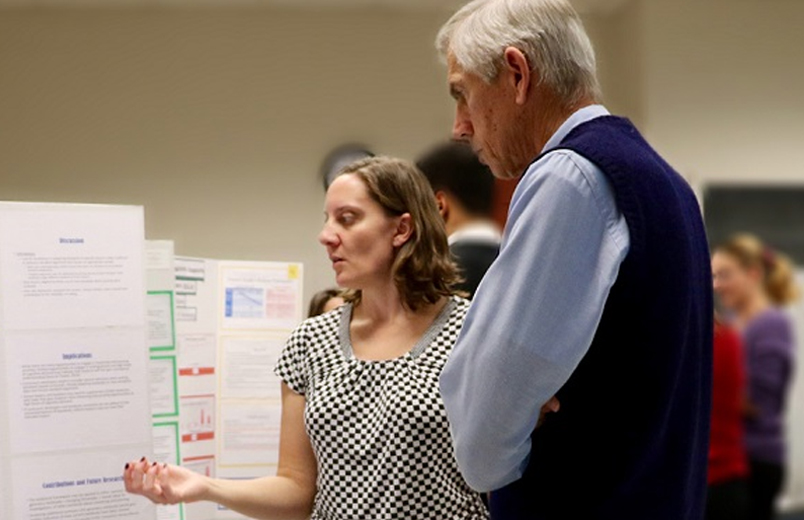
Program Coordinator: Dr. Teomara Rutherford
Specialization Coordinators: Dr. Charles Hohensee
Admission Requirements
In addition to the admission requirement of all applicants to Ph.D. programs in the School of Education, applicants to the program in Mathematics Education are expected to hold a Bachelor’s degree in mathematics or equivalent and/or a Master’s degree in mathematics, mathematics education, or a related field. School teaching experience is preferred. Applicants with special strengths and somewhat different profiles, such as educators who have an interest in further exploring the teaching and learning of mathematics, will also be considered.
Specialization Coursework
In addition to the Doctoral Core Courses, the following specialization courses are required of all Ph.D. students in mathematics education.
- EDUC 833: Research and Theory of Mathematics Learning
- EDUC 834: Research and Theory of Mathematics Teaching
- EDUC 835: Research and Theory of Mathematics Curriculum
- EDUC 836: Research and Theory of Mathematics Teacher Education and School Improvement
Note: the fourth course fits into the curriculum as a course needed for the specialization.
Sample Course Schedules
Sample Mathematics Education course schedules for students who enter the Ph.D. program in the following semesters are available through the links below.
- Students entering in the Fall of odd years
- Students entering in the Fall of even years
Specialization Requirements
All PhD students in the mathematics education specialization must complete the following additional requirements.
- Enroll in the seminar course EDUC 838: Research Issues in Mathematics Education (1 credit) in the first 3 semesters for credit and in the remaining semesters as a listener.
- Complete a Qualifying Experience that will be submitted as part of your Qualifying Examination.
- Pass the Qualifying Examination in mathematics education, taken after completion of the four mathematics education courses (usually taken during the summer of Year Two).
- Develop a portfolio demonstrating expertise in the common activities of the profession (e.g. , presenting a paper at a professional conference).
Alterations in the program require approval of the full faculty in mathematics education.
Recent Graduates
Our graduates accept academic positions in research universities, departments of education, and school districts, as well as industry positions in educational organizations.
For example, recent PhD in Education graduates with a mathematics education specialization have accepted positions at Washington State University, Western Michigan University, Iona College, University of Southern Mississippi, University of California Chico, Delaware State University, University of Delaware, The College of New Jersey, Towson University, Central Michigan University, West Chester State University, University of Missouri, Rowan University, Salisbury University, Kennesaw State University, University of Northern Iowa, University of Pittsburgh, California State University in Fullerton, Stockton University, Montclair State University, Shippensburg University of Pennsylvania, Purdue University Fort Wayne, Virginia Tech University, Illinois State University and Manhattanville College.
Program Faculty
Our faculty hold grants from the National Science Foundation, the Institute of Education Sciences and private foundations. They have been recognized for their work by the American Educational Research Association, American Association of Colleges of Teacher Education and National Council of Teachers of Mathematics.

Doctoral Students

Student Spotlight

Amanda Mohammad Mirzaei
“I have experienced a rigorous program in pursuing my Ph.D. in Education at UD, and it certainly hasn’t been a walk in the park. However, the support from the faculty and other graduate students has guaranteed that even at its most difficult, juggling the demands of this degree while pursuing a personal life isn’t impossible. I am happy that I chose the University of Delaware for my Ph.D. program and I would choose it again without hesitation.”
Research Projects
Request More Information
Visit Campus
- Major and Minors
- Graduate Programs
- Prospective Students
- Academic Calendar
- Social Media
- 113 Willard Hall Education Building , Newark, DE 19716
- Phone: (302) 831-8695
- Fax: (302) 831-4110

Mathematics Education PhD
Program description.
Montclair State University’s PhD program in Mathematics Education is designed for students with strong backgrounds and experiences in both mathematics and mathematics education. The program prepares students to make contributions to research and practice in the field through careers including mathematics education researchers, teacher educators, leaders in school districts and educational agencies, mathematics program designers and curriculum developers, and research-driven teachers and school leaders.
Students enter the program with a variety of curricular, pedagogical, psychological, and philosophical experiences and interests related to mathematics education. While enrolled in the program, they become immersed in research, work with faculty and other students on projects, develop and carry out their own projects, and network with other members of the mathematics education research community. And as they do these things, they complete coursework focused on research in mathematics teaching, learning, and curriculum that prepares them for these scholarly activities. As many of our students have experience teaching mathematics at the elementary, secondary, and college levels, their research has the benefit of being grounded in, and applicable to, practice.
All classes are offered on campus in the evenings between 3:45 pm and 8:00 pm. Full-time students take 3 courses per semester and tend to complete the program in about 5 years; part-time students take 1 or 2 courses per semester and tend to complete the program in 7. Some courses are also offered in the summer.
Please further explore our website to learn more about the program and to learn of the program requirements and admissions process . Also take a look at our news items below to see the research that faculty and students have been involved in.
For information about the program or to talk with a member of the doctoral faculty in mathematics education, please email Dr. Steven Greenstein, [email protected] .
Fellowship Opportunities
- The Montclair State University Westerdahl Fellowships for Doctoral Studies in Mathematics Education provides full tuition and a stipend of $25,000 per year, renewable for up to four years.
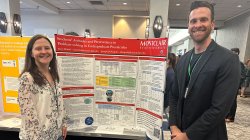

Contact the Doctoral Program Director

Steven Greenstein
Associate Professor, Mathematics
- Skip to Content
- Skip to Main Navigation
- Skip to Search

Indiana University Bloomington Indiana University Bloomington IU Bloomington

- Office Directory
- Add or Edit Profile
- Community Engagement
- Financial Management Practices
- Development and Alumni Relations
- Benefits and Services
- Employee Appreciation Programs
- The Five Functions of DEI
- Communication
- Recruitment
- DEI Dashboard
- 2020 Report
- 2019 Report
- Student Ambassadors
- Education Library
- Education Technology Services
- Graduate Studies
- Instructional Consulting
- Downloadable Resources
- Promotional Posting Guidelines
- Video Production Guidelines
- Research and Development
- Records and Reporting
- Dean's Advisory Board
- Service, Leadership, and Outreach
- Student Success
- Diversity Plan
- 100th Anniversary Book
- Diversity, Equity, and Inclusion
- Targeted Engagements
- Global Gateway for Teachers
- Overseas Short-Term Study Experiences
- External Grant Opportunities
- Our Global Reach
- Faculty and Student Int'l Engagement
- IU Global Gateways
- Indiana Global Education Outreach
- Int'l Partnerships
- Visiting Int'l Scholars
- Int'l Student Ambassadors
- Academic Programs
- International Journals
- News & Events
- Int'l Student Resources
- P-12 School Engagement
- CAEP Annual Reporting Measures
- CAEP Accreditation Visit Call for Third-Party Comments
- SoE Data Dashboards (Faculty)
- Licensure Requirements
- Employment Outcomes
- Employer Evaluations
- Student Teaching Survey Reports
- Attrition & Completion Rates
- Graduate Survey Results
- Indiana Teachers of the Year
- Emergency Action Plan
- SoE Emergency Information
- School Violence
- Report Facility Issue
- Direct Admit Scholars
- TEP Application Guidelines
- Accessible Virtual Tour
- Field Trips
- Non-School of Education Scholarships
- Graduate Student Funding
- Student Emergency Fund
- Campus Financial Aid Resources
- INSPIRE Living-Learning Center
- All Programs
- License Additions
- Master's Programs
- Doctoral Programs FAQ
- Specialist Programs
- Certificate Programs
- Doctoral Minors
- Licensure Programs
- Transition to Teaching
- New Zealand
- Northern Ireland
- Navajo Nation Program
- Urban Program
- Overseas CASS Internships
- Teacher Spotlights
- IU Bloomington Students
- Guest Campus Students
- Partner Campus Students
- Student Spotlights
- Cost & Financial Aid
- Online Learning
- Tuition and Fees
- Registration
- Block Enrollment Course Information
- Student Teaching Registration Information
- Program Sheets
- Forms & Publications
- Credit Overload Request
- Four Year Plan
- Academic Calendar
- Undergraduate Bulletin
- Background Check
- Early Field Experiences
- Student Teaching Forms
- Preparation
- Frequently Asked Questions
- Student Organizations
- Counseling and Student Services
- Dean's List
- Report Your Concerns
- Scholarships
- Career Coaching
- Student Teaching Fair
- Health and Human Services Career Day
- Interview Day
- Explore Possibilities
- Get Experience
- Stay Connected
- Professional Distinction
- Educator Wellbeing Distinction
- Workshops and Training
- Recruiting Policies
- Classroom Presentations
- Graduation Deadlines
- Leave Policy
- Online Students
- Graduation Application
- Guidelines for Multi-Article Dissertations
- G901 Permission Request
- Qualifying Examinations
- 2023 Scholars
- 2022 Scholars
- 2021 Scholars
- 2020 Scholars
- Program-Specific Information
- International Student Ambassadors
- Student Affiliates in School Psychology
- Student Testimonials
- Dissertation & Thesis Announcements
- Approved Core Inquiry Courses
- Holmes Scholars Program
- Initial Licensure
- License Renewal
- Licensing Outside Indiana
- Knowledge Base
- Graduate Bulletin
- Teaching with Technology Lab
- Support Services
- Volunteering Opportunities
- Faculty Directory
- Counseling and Educational Psychology
- Curriculum and Instruction
- Chair's Welcome
- IST Conference
- Faculty Bookshelf
- Faculty Meetings
- Policies and Procedures
- In Memoriam
- Office of Research and Development
- Spring 2024 Highlights
- Policy Reports
- Policy Briefs
- Data Visualizations
- Education Policy News
- CEEP in the News
- CEEPing Up with Education Podcast
- Evaluation Services
- Funded Research
- Research Findings
- Translation to Practice
- Equity in Action
- Overview and Project Timeline
- Analysis in Progress
- Presentations
- Accomplishments
- Teacher Study Group
- "Creative Paths to Peace" Grant
- Proffitt Internal Grant Competition
- Proffitt Summer Faculty Fellowship Program
- Tilaar Faculty Support Fund
- Cost-Share and Matching Funds on External Grant Proposals
- Current Visiting Scholars
- Become a Visiting Scholar
- Visiting Scholar Policies
- COVID-19 Entry Updates
- Flexible Workspace
- Faculty & Staff Giving Campaign
- Donor Spotlights
- Get Involved
- Submit a Nomination
- Alumni Magazine
- Alumni Board of Directors
- University Superintendent Search Team
- Counseling and Wellness Clinic
- Learning and Developmental Evaluation Clinic
- Current Cohort
- Past Cohorts
- Nominate a Teacher
- How to Apply
- Armstrong Teacher Panel Archive
- Current Jacobs Educators
- Past Winners
- Advisory Board
- Teachers' Examples
- Research-to-Practice Briefs
- Speaker Series
- Saturday Art School
- Past Lesson Plans
- Partners in Education (PIE)
- Maker Mobile
- Past Mentors
- HOPE Training Modules
- HOPE for Cadets
- AAC in Action
- Celebration of Excellence
- C&I Graduate Research Symposium
- Invited Sessions
- Visiting Bloomington
- Virtual Events
- Advisory Committee
- Education Law Resources
- Science Education Research Symposium
- Convocation
- Diggs Symposium
School of Education
- Doctoral Programs
Ed.D. in Curriculum and Instruction – Specialization in Mathematics Education (Online)
Mathematics education.
The 60-credit, post-masters Ed.D. degree is for experienced mathematics teachers, instructional leaders, and others wishing to pursue a doctorate focusing on mathematics education. This fully online program offers flexibility for working professionals from across the U.S. and around the world. Courses are taught by world-renowned mathematics education faculty. Courses focus on:
- effective mathematics teaching
- mathematical thinking and learning
- equity in mathematics education
- mathematics curriculum
- problem solving
- teaching mathematics with digital technologies
- mathematics assessment
- mathematics teacher education
- research methods and their uses for improving mathematics education
Application Deadlines
| Summer | Feb 1 | |
| ||
Admission Requirements
The Graduate Studies Office will accept unofficial transcripts and self-reported test scores for admission reviews. Any admission made with these documents would be conditioned on receipt of official documents, which should be provided as soon as possible.
If you are currently enrolled or have applied in the past year, you are eligible for a reduced application fee of $35. Learn more »
- Bachelor’s degree from an accredited institution
- Master’s degree from an accredited institution
- Minimum undergraduate GPA of 2.75 out of 4.00
- Personal statement
- Two letters of recommendation
- Minimum 79 TOEFL score or minimum 6.5 IELTS score or minimum 115 Duolingo score (international students only)
Learn more about how to apply
Program Requirements
- Ed.D. in Curriculum and Instruction – Specialization in Mathematics Education (Online) Requirements
Costs listed are per credit hour.
2023-2024 Academic Year
| Indiana Resident | $500.17 | $39.00 | $539.17 |
| Non-resident | $599.51 | $39.00 | $638.51 |
2024-2025 Academic Year
| Indiana Resident | $520.17 | $39.00 | $559.17 |
| Non-resident | $623.49 | $39.00 | $662.49 |
Find more information and calculate your expected costs at Student Central .
Below is a list of potential resources for graduate students. Note: graduate assistantships are generally intended for students studying and working on the Bloomington campus.
- Learn about the variety of fellowships and assistantships available to graduate students.
- Visit Student Central for information about financial assistance.
- Consult your employer about the availability of tuition reimbursement or tuition assistance programs.
- Active duty military, veterans, and military families should visit the Center for Veteran and Military Students to take full advantage of available financial assistance and educational benefits.
- Request info
Our faculty
- Mathematics Graduate Student Portal
No GRE Required
for admittance into this program

Ph.D. in Mathematics Education This program prepares students to do research and teach mathematics and mathematics education at colleges and universities. Learn more

Enrique Galindo
Associate professor.
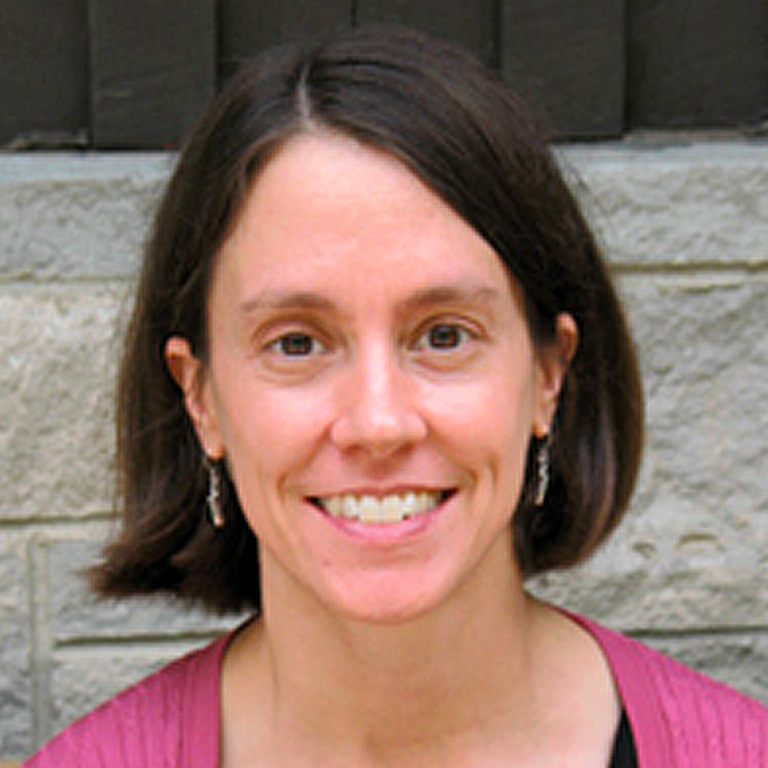
Amy Hackenberg

Erik Jacobson
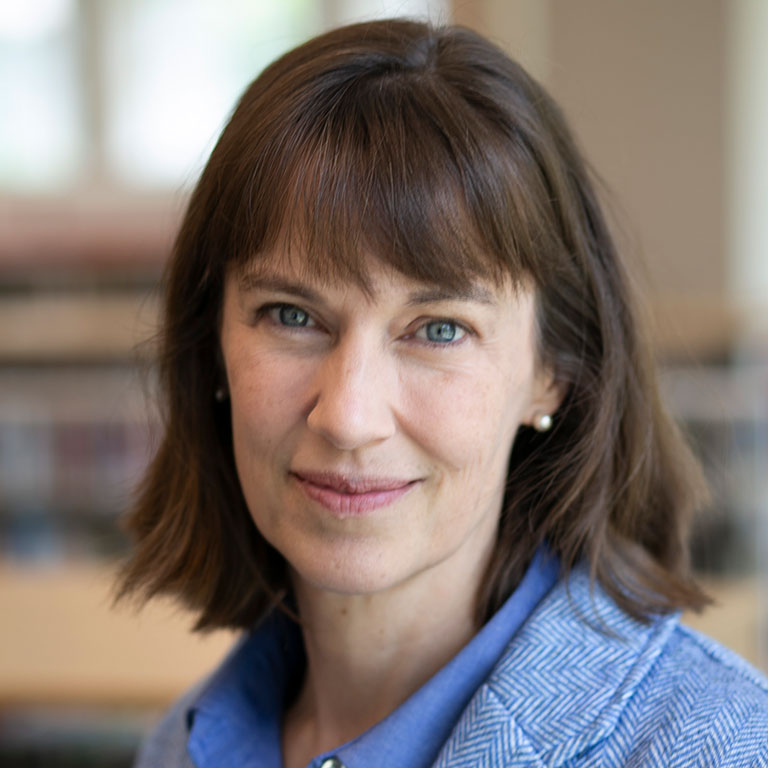
Sarah Lubienski
Executive associate dean.

Erik Tillema
Affiliated faculty.
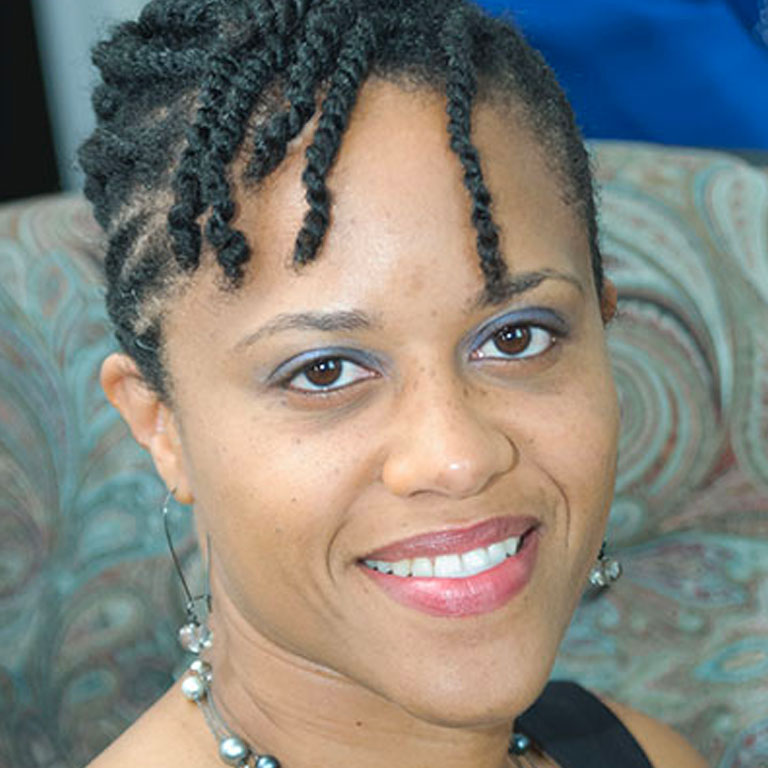
Crystal Morton
Associate professor, adjunct associate professor in africana studies.
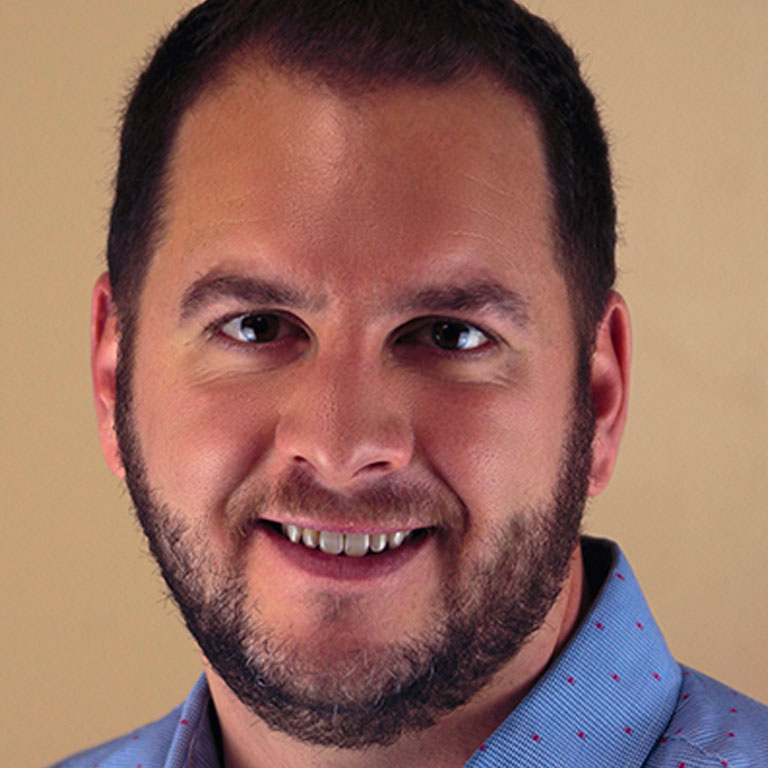
Craig Willey
Associate professor, dept. chair of urban teacher education.
Amy Hackenberg Professor ED 3060 ahackenb@iu.edu (812) 856-8223
Start your life-changing journey
Additional links and resources.
- From the Dean
- Strategic Planning
- Global & International Engagement
- Accreditation
- Measures of Success
- Emergency Preparedness
- Departments
- Instructor Resources
- Undergraduate
- Annual Highlights
- Research Centers
- Research Initiatives
- Visiting International Scholars
- Undergraduate Portal
- Career Connections
- Graduate Portal
- Academic Resources
- Award Programs
- Youth Programs
- Maker Education
- HOPE Mentoring
- Virtual Tour
- Visit the School
- Distinguished Alumni Award
Indiana University Bloomington School of Education
- X (Twitter)
SoE Knowledge Base
SoE Intranet (Legacy)

- Apply to UW
- Programs & Majors
- Cost & Financial Aid
- Current Students
- UW Libraries
- Online Degrees & Programs
- Degree Plans & Courses
- Advising & Career Services
- UW College of Law
- Honors College
- Academic Affairs
- Geological Museum
- All Colleges
- Campus Recreation
- Campus Maps
- Housing & Dining
- Transit & Parking
- University Store
- Student Organizations
- Campus Activities
- Campus Safety
- Research & Economic Dev.
- Wyoming INBRE
- Neuroscience Center
- Research at AMK Ranch
- Technology Transfer Office
- Supercomputing
- Water Research
- WY EPSCoR/IDeA
- American Heritage Center
- Where We Shine
- About Laramie
- Student Stories
- Campus Fact Book
- UWYO Magazine
- Marketing & Brand Center
- Administrative Resources
- Strategic Plan
- +Application Login

Mathematics Education Ph.D.
Bachelor's Degrees | Master's Degrees | Doctoral Degrees | Certificates & Endorsements | About | Advising | Donate
The Doctor of Philosophy in Curriculum and Instruction with a concentration in Mathematics Education at the University of Wyoming offers advanced coursework for educational professionals interested in pursuing a degree whose advanced study might someday lead them to research-oriented careers, primarily working in university settings.
Courses in the program are offered online, allowing you to pursue the Ph.D. in mathematics education while you continue in your current professional role. Candidates in this program aim to be scholar-leaders for the field of mathematics education at colleges and universities worldwide. As a student in the program, you will begin developing your research agenda under the mentorship of experienced academic researchers.
Learn more about the benefits of gaining your Ph.D. degree in education at UW .
Interested in a doctoral program where you will utilize applied research to solve a current problem of teaching practice? Take a look at our Ed.D in programs in education.
Email Mathematics Education Program Coordinator Dr. Rick Kitchen, [email protected] or take a look at our FAQs page .
ADDITIONAL INFORMATION
ADMISSION Learn how to apply and start your journey today.

CURRICULUM Learn about required classes and requirements.
RESOURCES Find resources for students and faculty members .

FACULTY Meet the supportive teacher preparation faculty team .
Welcome to the Math PhD program at Harvard University and the Harvard Kenneth C. Griffin Graduate School of Arts and Sciences.
Learn more about Harvard’s Math community and our statement on diversity and inclusion.
The Harvard Griffin GSAS Office of Equity, Diversity, Inclusion & Belonging offers student affinity groups for graduate students and many other resources.
The Harvard University Office for Gender Equity has dedicated GSAS Title IX resource coordinators who work with and support graduate students.
open. The application deadline is December 15, 2021. -->
The application deadline for fall 2024 admission has passed. Applications for fall 2025 admission will open in September 2024.
For information on admissions and financial support, please visit the Harvard Harvard Kenneth C. Griffin Graduate School of Arts and Sciences.
Harvard Griffin GSAS is committed to ensuring that our application fee does not create a financial obstacle. Applicants can determine eligibility for a fee waiver by completing a series of questions in the Application Fee section of the application. Once these questions have been answered, the application system will provide an immediate response regarding fee waiver eligibility.
- Undergraduate
Print Options
- Graduate School Academic Catalog
- Programs of Study
- Mathematics and Statistics (MATH)
Mathematics Education (Ph.D.)
https://ceps.unh.edu/mathematics-statistics/program/phd/mathematics-education
The program is designed to provide students with depth and breadth in the fields of both mathematics education and mathematics, preparing students for educational and research leadership. The program is designed to advance forefront knowledge in mathematics education.
Admission Requirement
Applicants to the Ph.D. in Mathematics Education degree must have BA or BS from an accredited college or university. Successful candidates typically have a bachelor’s degree in mathematics or mathematics education and/or advanced coursework in mathematics.
Please visit the Graduate School website for detailed instructions about applying to the program.
Students are advanced to candidacy after meeting the following requirements:
| Code | Title | Credits |
|---|---|---|
| Required Courses | ||
| Advanced Coursework in Mathematics | ||
| Algebra I | 3 | |
| Algebra II | 3 | |
| Analysis I | 3 | |
| Analysis II | 3 | |
| Topology I | 3 | |
| Advanced Coursework in the Major Field (Mathematics Education) | ||
| Foundations of Math Education | 1 | |
| Introduction to Research Design in STEM Education | 3 | |
| Topics in Mathematics Education I (A) | 3 | |
| Topics in Mathematics Education I (B) | 3 | |
| Topics in Mathematics Education II (at least two semesters) | 6 | |
| Two additional courses in research methods (one qualitative, one quantitative), typically: | ||
| Qualitative Inquiry in Research | 4 | |
| Statistical Methods for Research | 3 | |
Successful completion of written comprehensive examinations in algebra, analysis, mathematics education and an elective subject.
Successful completion of a minor program of study (usually a related one, such as educational psychology or research methodology, but possibly in an area of mathematics) followed by the minor presentation.
Successful completion of a dissertation proposal defense in the major field of mathematics education.
Experience in teaching equivalent to at least half-time for one year typically through assistantship assignments.
Dissertation
Students must complete and submit a dissertation that involves original research in mathematics education.
- Demonstrate deep knowledge of graduate level mathematics content: algebra, analysis, topology.
- Demonstrate competency in the minor field of study different from, but related to mathematics education (e.g., mathematics, statistics, linguistics, research methods, other sciences, STEM disciplines).
- Demonstrate the ability to conduct and communicate foundations of mathematics education research, theories of mathematics teaching and learning, and mathematics curriculum.
Send Page to Printer
Print this page.
Download Page (PDF)
The PDF will include all information unique to this page.
Our websites may use cookies to personalize and enhance your experience. By continuing without changing your cookie settings, you agree to this collection. For more information, please see our University Websites Privacy Notice .
COLLEGE OF LIBERAL ARTS AND SCIENCES
Department of Mathematics
- Ph.D. in Mathematics
- General Information
- Financial Aid
- Answers to FAQ
- M.S. in Mathematics
- Ph.D. in Mathematics with Thesis in Actuarial Science
- M.S. in Actuarial Science
- M.S. in Applied Financial Mathematics
- M.S. in Applied Financial Mathematics – Actuarial Science
- Course Schedule
- Preliminary Exams
Overview of Graduation Requirements
To graduate with a PhD in Mathematics, a student must satisfy all of the following requirements:
- 45 credits, including 15 doctoral dissertation research credits/GRAD 6950
- If you have a Master’s degree in mathematics at UConn, then 30 credits are required, including 15 doctoral dissertation research credits.
- Pass at least one prelim exam after each semester for the first three semesters of their graduate study.
- Finish all prelim exam requirements by the beginning of the spring semester in their second year.
- Finish all core course requirements by the end of their second year of graduate study,
- Choose a thesis advisor no later than the end of the fall semester of the third year.
- Form your advisory committee : Major Advisor and at least two Associate Advisors or Co-Major Advisors and at least one Associate Advisor.
- Meant to further the student’s education, scholarship and professional development.
- Material should be in the broad area in which the student intends to write a dissertation, but should not focus on the actual thesis research. Students present and answer questions about the material they have studied.
- The exam is normally taken at the end of the third year or beginning of the fourth year.
- Submit Dissertation Proposal
- Submit Plan of Study
- Apply for Graduation in Student Admin by the fourth week of the final semester.
- Dissertation Specifications under Dissertation Information
- Thesis templates (for LaTex) are available on our Thesis Formatting page
- Submit Approval Page – Step 7
- Complete Survey of Earned Doctorates – Step 7
- Add Diploma Address in Student Admin and Diploma Info.
Preliminary Examination and Core Course Requirements
Pure Mathematics
- Math 5111/Measure and Integration
- Math 5120/Complex Function Theory
- Math 5210/Abstract Algebra
- Math 5310/Introduction to Geometry and Topology I
- Math 5160/Probability Theory and Stochastic Processes I
- Math 5210/Abstract Algebra I
- Math 5211/Abstract Algebra II
- Math 5260/Mathematical Logic I
- Math 5360/Differential Geometry
Applied Mathematics
- Math 5410/Introduction to Applied Mathematics I
- Math 5510/Numerical Analysis and Approximation Theory I
- Math 5440/Partial Differential Equations
- Math 5520/Finite Element Solution Methods I
Past Prelim Exams
Department of Mathematics
Mathematics phd program.
The Ph.D. program in the Department of Mathematics provides students with in-depth knowledge and rigorous training in all the subject areas of mathematics. A core feature is the first-year program, which helps bring students to the forefront of modern mathematics. Students work closely with faculty and each other and participate fully in both research and student-run seminars.
Questions? Email [email protected]
- The firm deadline for applications for Autumn 2025, is December 5, 2024.
- The (general and advanced) GRE tests are no longer accepted. Please do not submit these scores.
Ph.D. Program
Degree requirements.
In outline, to earn the PhD in either Mathematics or Applied Mathematics, the candidate must meet the following requirements.
- Take at least 4 courses, 2 or more of which are graduate courses offered by the Department of Mathematics
- Pass the six-hour written Preliminary Examination covering calculus, real analysis, complex analysis, linear algebra, and abstract algebra; students must pass the prelim before the start of their second year in the program (within three semesters of starting the program)
- Pass a three-hour, oral Qualifying Examination emphasizing, but not exclusively restricted to, the area of specialization. The Qualifying Examination must be attempted within two years of entering the program
- Complete a seminar, giving a talk of at least one-hour duration
- Write a dissertation embodying the results of original research and acceptable to a properly constituted dissertation committee
- Meet the University residence requirement of two years or four semesters
Detailed Regulations
The detailed regulations of the Ph.D. program are the following:
Course Requirements
During the first year of the Ph.D. program, the student must enroll in at least 4 courses. At least 2 of these must be graduate courses offered by the Department of Mathematics. Exceptions can be granted by the Vice-Chair for Graduate Studies.
Preliminary Examination
The Preliminary Examination consists of 6 hours (total) of written work given over a two-day period (3 hours/day). Exam questions are given in calculus, real analysis, complex analysis, linear algebra, and abstract algebra. The Preliminary Examination is offered twice a year during the first week of the fall and spring semesters.
Qualifying Examination
To arrange the Qualifying Examination, a student must first settle on an area of concentration, and a prospective Dissertation Advisor (Dissertation Chair), someone who agrees to supervise the dissertation if the examination is passed. With the aid of the prospective advisor, the student forms an examination committee of 4 members. All committee members can be faculty in the Mathematics Department and the chair must be in the Mathematics Department. The QE chair and Dissertation Chair cannot be the same person; therefore, t he Math member least likely to serve as the dissertation advisor should be selected as chair of the qualifying exam committee . The syllabus of the examination is to be worked out jointly by the committee and the student, but before final approval, it is to be circulated to all faculty members of the appropriate research sections. The Qualifying Examination must cover material falling in at least 3 subject areas and these must be listed on the application to take the examination. Moreover, the material covered must fall within more than one section of the department. Sample syllabi can be reviewed online or in 910 Evans Hall. The student must attempt the Qualifying Examination within twenty-five months of entering the PhD program. If a student does not pass on the first attempt, then, on the recommendation of the student's examining committee, and subject to the approval of the Graduate Division, the student may repeat the examination once. The examining committee must be the same, and the re-examination must be held within thirty months of the student's entrance into the PhD program. For a student to pass the Qualifying Examination, at least one identified member of the subject area group must be willing to accept the candidate as a dissertation student.
Mathematics

Undergraduate Program
Mathematics is the science of order, and mathematicians seek to identify instances of order and to formulate and understand concepts that enable us to perceive order in complicated situations. The concentration in Mathematics is designed to acquaint the student with the most important general concepts underlying the three branches of modern mathematics. Concentration in mathematics will provide an adequate basis for further study in either pure or applied mathematics. Students are also eligible to apply for an A.B./A.M. degree program.
The graduate Mathematics Program at Harvard is designed for students who hope to become research mathematicians and show definite promise in this direction. Once the student has demonstrated a command of basic mathematical concepts by passing the qualifying examination, the emphasis is on getting to the frontiers of some field by independent reading, advanced courses, and seminars. The Cambridge area is one of the most active centers of mathematics in the world. Harvard, Brandeis, and Northeastern Universities and the Massachusetts Institute of Technology have an especially close association in mathematics, and the Harvard University Center of Mathematical Sciences and Applications hosts conferences, seminars, and workshops.
Mathematics, PhD
Zanvyl krieger school of arts and sciences.
The goal of our PhD program is to train graduate students to become research mathematicians. Our students go on to exciting careers in mathematics both inside and outside of academia.
Faculty research interests in the Johns Hopkins University Department of Mathematics are concentrated in several areas of pure mathematics, including algebraic geometry, algebraic topology, category theory, geometric analysis, harmonic analysis, mathematical physics, number theory, and partial differential equations. The department also has an active group in data science, in collaboration with the Applied Math Department .
The Department values diversity among its members, is committed to building a diverse intellectual community, and strongly encourages applications from all interested parties.
A brief overview of our graduate program is below. For more detailed information, please see the links at the right.
Program Overview
PhD candidates take two or three courses per semester over the first several years of the program. These are a mix of required and intermediate-level graduate courses, independent studies, and special topics classes offered by our faculty. Candidates must take, attend, participate in, and pass the course 110.771 (GTA Teaching Seminar). The seminar is an important part of the preparation for classroom teaching, and thus an essential part of mathematics graduate education. The seminar is generally required in a student's first year at JHU. A student supported by an external fellowship may delay taking the seminar until the spring before they are required to TA (but may not postpone the seminar entirely).
By the beginning of their second year, students are asked to demonstrate competency in algebra and in analysis by passing written qualifying exams in these two broad areas. Students are then expected to choose an advisor, who will supervise their dissertation and also administer an oral qualifying exam to be taken in the second or third year. More specifics about all these requirements are described on the requirements page .
All graduate students are invited to attend weekly research seminars in a variety of topic areas as well as regular department teas and a weekly wine and cheese gathering attended by many junior and senior members of the department. A graduate student lunch seminar series provides an opportunity for our students to practice their presentation skills to a general audience.
Teaching experience is regarded as an important part of the graduate program, and graduate students are required to teach during their program.
Each student is awarded a travel allowance to enable them to attend conferences for which limited funding is available, or to visit researchers at other institutions.
William Kelso Morrill Award
The William Kelso Morrill Award for excellence in the teaching of mathematics is awarded every spring to the graduate student who best exemplifies the traits of William Kelso Morrill: a love of mathematics, a love of teaching, and a concern for students.
Joel Dean Excellence in Teaching Awards
These awards are given each year to graduate student teaching assistants, undergraduate teaching assistants, and non-tenure-track faculty who have demonstrated exceptional ability and commitment to undergraduate education.
Admission Requirements
Admission to the PhD program is based on primarily on academic records, letters of recommendation, and a personal statement. The Department of Mathematics values diversity among its members, is committed to building a diverse intellectual community, and strongly encourages applications from all interested parties.
Via the online application , applicants should submit:
- A Statement of Purpose
- An optional Personal Statement
- Transcripts from all institutions attended
- Three letters of recommendation
- Official TOEFL scores (if English is not your first language)
- Optionally , a self-reported score for the GRE Mathematics subject test.
The required Statement of Purpose discusses your academic interests, objectives, and preparation. The optional Personal Statement describes your personal background, and helps us create a more holistic understanding of you as an applicant. If you wish you may also discuss your personal background in the Statement of Purpose (e.g. if you have already written a single essay addressing both topics), instead of submitting separate statements.
Submission of GRE Math subject scores is optional. The department views GRE Math subject scores as useful information. For applications which do not include these scores, more weight will be placed on the other elements of the application. Applicants who choose to self-report a GRE Math Subject score need not send an official score report at time of application; we will request verification only if you are accepted to the program.
Application fee waivers are available based on financial need and/or participation in certain programs .
Many frequently asked questions about the graduate admission process are answered here .
No application materials should be mailed to the department. All application materials are processed by the Graduate Admissions Office .
Undergraduate Background
The following is an example of what the math department would consider a good background for a student coming out of a four-year undergraduate program at a college or university in the U.S. (assuming a semester system):
- Calculus in one variable (two semesters, or AP credits)
- Multivariable Calculus (one semester)
- Linear Algebra (one semester)
- Complex analysis (one semester)
- Real analysis (two semesters)
- Abstract algebra (two semesters)
- Point-set topology (one semester)
Many admitted students have taken upper-level undergraduate mathematics courses or graduate courses. Nevertheless, the department does admit very promising students whose preparation falls a little short of the above model. In such cases, we strongly recommend that the student start to close the gap over the summer, before arriving for the start of the fall semester.
Additional Information for International Students
Student Visa Information: The Office of International Services at Homewood will assist admitted international students in obtaining a student visa.
English Proficiency: Johns Hopkins University requires students to have adequate English proficiency for their course of study. Students must be able to read, speak, and write English fluently upon their arrival at the university. Applicants whose native language is not English must submit proof of their proficiency in English before they can be offered admission and before a visa certificate can be issued. Proficiency can be demonstrated by submitting results from either the Test of English as a Foreign Language (TOEFL) or the IELTS . Johns Hopkins prefers a minimum score of 100 on the TOEFL or a Band Score of 7 on the IELTS. Results should be sent to Johns Hopkins directly by TOEFL or IELTS. Applicants taking the IELTS must additionally upload a copy of their score through the application system. However, do not send the student copy or a photocopy of the TOEFL.
Program Requirements
Course requirements.
Mathematics PhD candidates must show satisfactory work in Algebra (110.601-602), Real Variables (110.605), Complex Variables (110.607), and one additional non-seminar mathematics graduate course in their first year. The first-year algebra and analysis requirement can be satisfied by passing the corresponding written qualifying exam in September of the first year; these students must complete at least two courses each semester. In addition, PhD candidates must take Algebraic Topology (110.615) and Riemannian Geometry (110.645) by their second year. Students having sufficient background can substitute an advanced topology course for 110.615, or an advanced geometry course for 110.645 with the permission of the instructor.
Candidates must show satisfactory work in at least two mathematics graduate courses each semester of their second year, and if they have not passed their oral qualifying exam, in the first semester of their third year.
Qualifying Exams
Candidates must pass written qualifying exams by the beginning of their second year in Analysis (Real & Complex) and in Algebra. Exams are scheduled for September and May of each academic year, and the dates are announced well in advance.
Candidates must pass an oral qualifying examination in the student’s chosen area of research by April 10 of the third year. The topics of the exam are chosen in consultation with the faculty member who has agreed (provisionally) to be the student’s thesis advisor, who will also be involved in administering the exam.
PhD Dissertation
Candidates must produce a written dissertation based upon independent and original research. After completion of the thesis research, the student will defend the dissertation by means of the Graduate Board Oral exam . The exam must be held at least three weeks before the Graduate Board deadline the candidate wishes to meet.
Our PhD program does not have a foreign language requirement.
- Skip to content
- Skip to this site's menu
- Skip to search
Welcome to Brock University
Information for.
- Future students
- Current students
- International
- Professional and Continuing Studies
- Community partners
- Alumni and donors
- Faculties & Departments
- Graduate Studies
- Teaching & Learning
- Academic Integrity
- Research @ Brock
- Institutes and Centres
- Research services
- Brock innovation
- Transdisciplinarity at Brock
- Funding opportunities
- About Brock
- Visitor information
- Careers @ Brock
- A–Z directory
Quick links
- Student Email / 365
- my.brocku.ca
- Brightspace
- Office of the Registrar
- Campus Store
- Brock Sports
- Important Dates
- Students’ Union (BUSU)
- Graduate Students’ Union (GSA)
- The Brock News
- Events around campus
- Faculty and Staff directory
- Campus Safety
- Faculty and Staff Login
- Faculty and Staff Email
- ITS Help Desk - Password Resets
- Brock U Home
Want to go to Brock but not sure where to start? We can help.
How to apply.
- Undergraduate students
- Graduate students
- Teacher education
- Continuing education
Our programs
- Undergraduate programs
- Graduate programs
- Spring / Summer courses
- Online Learning
- Take a virtual tour
- Book a campus tour
- Living at Brock
- Smart Start
More information
- Admissions @ Brock
- Important dates
- Financial aid
- Request information
Faculty of Mathematics & Science
In this section.
- Dean’s Message
- Dean Peter Berg’s Profile
- Strategic Plan – FMS
- Machine Shop
- Science Stores
- Undergraduate Programs
- Graduate Programs
- Data Science and Analytics
- BASc in Earth and Planetary Science Communication
- BSc Sciences
- Master of Science in Materials Physics
- Faculty and Staff Award Nominations
- Teaching and Learning
- Teaching Awards
- Conference Assistance Application
- Faculty Computer Request Form
- Funding Request Form
- Research awards
- Featured Researchers
- Biological Sciences
- Biotechnology
- Computer Science
- Earth Sciences
- Yousef Haj-Ahmad Department of Engineering
- Mathematics and Statistics
- Neuroscience
- Department of Biological Sciences
- Department of Chemistry
- Department of Computer Science
- Department of Earth Sciences
- Department of Mathematics and Statistics
- Department of Physics
- Centre for Biotechnology
- Centre for Neuroscience
- Awards and Bursaries
- Prospective Undergraduate Students
- Prospective Graduate Students
- Resources for Current Graduate Students
- For All Current Students
- Academic Advising
- FMS GRaD Conference
- FMS – Undergraduate Research Symposium
- Science Start
- Contact Us and Directions
July 23 – PhD Thesis Defence – Gregory Foran
Tuesday, July 16, 2024 | By jsteepe
Gregory Foran, a PhD in Biological Sciences candidate, will defend his thesis titled “Mechanistic Insights into the Notch signalling pathway through Molecular Condensation” on Tuesday, July 23rd at 1 p.m.
The examination committee members are Elizabeth Vlossak, Chair; Aleksandar Necakov, Supervisor; Rhett A. Kovall, External Examiner (University of Cincinnati); Thad Harroun, Internal Examiner; and Jeff Stuart and Gaynor Spencer, Committee Members.
Tags: Biological Sciences , FMS , Thesis defence Categories: Events

FMS News and Events
- July 23 – PhD Thesis Defence – Gregory Foran
- July 15 – Master of Science thesis defence – Abhishek Kumar
- May 31 – Master of Science Thesis Defence – Pierre Simiganoschi
- May 29 – Master of Science Thesis Defence – Quanjian Li
- May 21 – Doctor of Philosophy Thesis Defence – Frank Betancourt
- May 16 – Master of Science Thesis Defence – Georgina Louise Gardner
- May 15 – Master of Science Thesis Defence – Jessica Graham
- May 14 – Master of Science Thesis Defence – Diana Tosato
- May 1 – Master of Science Thesis Defence – Mariana Garrido de Gastro
- April 26 – Master of Science Thesis Defence – Aaron Alderson
Connect with us
Helpful links.
- Emergency contacts
- Mental Health and Wellness
- Financial information
- Contact Brock University
- Media relations
- Website feedback
Every gift makes a difference.
Copyright © 2024 Brock University
Non-discrimination Policy University policies Privacy Accessibility
Niagara Region 1812 Sir Isaac Brock Way St. Catharines, ON L2S 3A1 Canada +1 905-688-5550
- X, formerly Twitter
We acknowledge the land on which Brock University was built is the traditional territory of the Haudenosaunee and Anishinaabe peoples, many of whom continue to live and work here today. This territory is covered by the Upper Canada Treaties and is within the land protected by the Dish with One Spoon Wampum agreement. Today this gathering place is home to many First Nations, Metis, and Inuit peoples and acknowledging reminds us that our great standard of living is directly related to the resources and friendship of Indigenous people.
We use cookies to improve your overall web experience. By using our website you consent to our use of cookies in accordance with our Privacy Policy I agree

IMAGES
VIDEO
COMMENTS
Learn how to apply for a doctoral program in mathematics education that balances mathematics and education courses, research and professional practice. Explore the program requirements, outcomes, competencies, and employment opportunities.
Learn how to teach and research mathematics in various educational contexts with this transdisciplinary PhD program. Explore the program requirements, admission criteria, curriculum, and career opportunities at Arizona State University.
Learn about the research-oriented doctoral program in mathematics education that requires a dissertation and certification exams. Find out the admission requirements, application deadlines, and program details for the Ph.D. degree.
Learn how to conduct research and teach mathematics in PK-16 settings with a PhD in Mathematics Education. Explore the program requirements, specializations, and application process for this full- or part-time program.
Learn about the interdisciplinary doctoral program in science, mathematics, technology, and engineering education at UC Berkeley. SESAME prepares scholars to conduct research and teach in STEM fields and education.
Learn about the Ph.D. program in Mathematics Education at Purdue University, which emphasizes research and requires a dissertation. Find out the admission deadlines, requirements, faculty, and how to apply.
Learn about the Ph.D. program of the Harvard Department of Mathematics, which aims to help students develop their understanding and enjoyment of mathematics. Find out the requirements, stages, and resources for the program, such as courses, exams, language, teaching, and dissertation.
Learn how to apply for a Ph.D. in Education with a specialization in Mathematics Education at the University of Delaware. Explore the program requirements, faculty, courses, and student profiles of this research-oriented program.
The PhD in Education and Human Development, Mathematics Education, prepares students to be a leader and changemaker in mathematics education. In this concentration, PhD students will: Obtain knowledge on teacher learning and professional development designed to impact content knowledge and student-informed pedagogical practices in classrooms.
A PhD program in Mathematics Education for students with backgrounds and experiences in both mathematics and mathematics education. The program prepares students for research and practice in the field and offers full-time and part-time options, evening classes, and fellowship opportunities.
The Ph.D. prepares students to do research and teach mathematics and mathematics education at colleges and universities. Specifically, this 90-credit hour Ph.D. program prepares you to conduct original research on topics in Mathematics Education, such as studies on how students and teachers learn mathematics, examinations of equity in mathematics education, assessments of students' and ...
A 60-credit, post-masters Ed.D. degree for experienced mathematics teachers and others who want to pursue a doctorate in mathematics education. Learn from world-renowned faculty and study topics such as effective mathematics teaching, mathematical thinking, equity, curriculum, assessment, and research methods.
Earn a Ph.D. in Curriculum and Instruction with a concentration in Mathematics Education online at UW. Learn from experienced researchers and develop your research agenda for a career in university settings.
Learn about the Math PhD program at Harvard University and the Harvard Kenneth C. Griffin Graduate School of Arts and Sciences. Find out how to apply, get financial support, and join the Math community.
Mathematics Education (Ph.D.) The program is designed to provide students with depth and breadth in the fields of both mathematics education and mathematics, preparing students for educational and research leadership. The program is designed to advance forefront knowledge in mathematics education.
Learn about the course credits, exams, dissertation and other requirements for earning a Ph.D. in Mathematics at UConn. Choose between pure and applied mathematics tracks and explore the past prelim exams.
Mathematics PhD Program. The Ph.D. program in the Department of Mathematics provides students with in-depth knowledge and rigorous training in all the subject areas of mathematics. A core feature is the first-year program, which helps bring students to the forefront of modern mathematics. Students work closely with faculty and each other and ...
Mathematics education doctoral students will complete core courses in mathematics and mathematics education. The program also requires elective courses from areas such as teaching specialized content, teaching K-12 students, mathematics technology, problem solving for secondary students, reasoning and proof. The culminating research activity is ...
In outline, to earn the PhD in either Mathematics or Applied Mathematics, the candidate must meet the following requirements. During the first year of the Ph.D. program: Take at least 4 courses, 2 or more of which are graduate courses offered by the Department of Mathematics. Pass the six-hour written Preliminary Examination covering calculus ...
The graduate Mathematics Program at Harvard is designed for students who hope to become research mathematicians and show definite promise in this direction. Once the student has demonstrated a command of basic mathematical concepts by passing the qualifying examination, the emphasis is on getting to the frontiers of some field by independent ...
Mathematics PhD candidates must show satisfactory work in Algebra (110.601-602), Real Variables (110.605), Complex Variables (110.607), and one additional non-seminar mathematics graduate course in their first year. The first-year algebra and analysis requirement can be satisfied by passing the corresponding written qualifying exam in September ...
Offered through the Department of Mathematics at Texas State, this Mathematics Education Ph.D. program has particular strength in the number of courses it requires in mathematics as a complement to its courses in the teaching and learning of mathematics. Doctoral graduates will have completed a strong mathematics core in addition to the ...
Learn about the research profile, facilities, career opportunities and entry requirements for the PhD in Mathematics Education programme. This degree allows you to interact with educational research groups in Mathematics and related disciplines.
Yale University. New Haven, CT. #8 in Mathematics (tie) Save. 4.6. A graduate degree in mathematics can help students hone their skills in a specialty area, from algebra and number theory to ...
Note: This page summarizes the requirements for PhD students in mathematics who entered our program before Fall 2024. For the current requirements please see this page. Requirements Outline. The Ph.D. degree is a research degree and the principal requirement is that a student writes an original research thesis. The thesis is produced under the ...
The purpose of the transcendental phenomenological study was to discover the role of adaptive learning programs in closing the learning gaps in mathematics for secondary students in Georgia following the COVID-19 pandemic. The theory guiding this study was that of Bandura's theory on self-efficacy, as it highlights how an individual's experience impacts their belief in their ability to ...
Statement of Goals: Describe the strengths and motivation of the applicant, the purpose for applying to a graduate program in mathematics, and why the applicant is interested in the intended degree. This forum should be used to make the applicant's strongest case for admission and, thus, should be well written.
It was really one of the high points of twentieth century mathematics when its proof was completed in the 70s by Pierre Deligne (building on foundations laid by Grothendieck).. What I was hoping to do was introduce tools from algebraic geometry that enter into the proof of this theorem to get the graduate students and recent PhDs who were attending the conference interested in exploring them.
Estonia restructured their schedule so that students in Grades 10-12 take an average of 32 short courses per year and must complete a minimum of 96 courses to graduate over three years.
Gregory Foran, a PhD in Biological Sciences candidate, will defend his thesis titled "Mechanistic Insights into the Notch signalling pathway through Molecular Condensation" on Tuesday, July 23rd at 1 p.m. The examination committee members are Elizabeth Vlossak, Chair; Aleksandar Necakov, ...